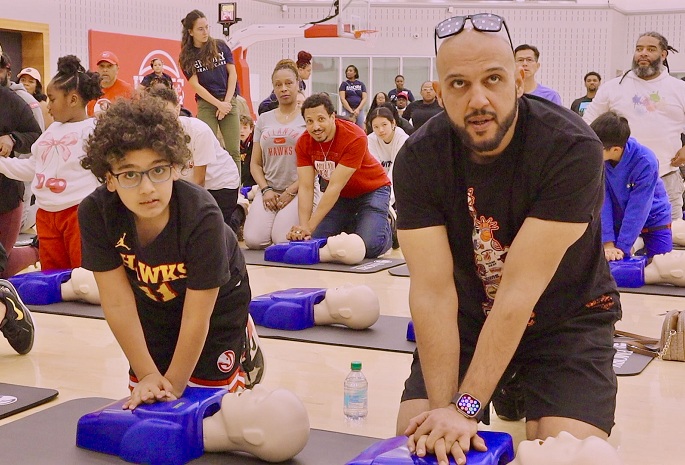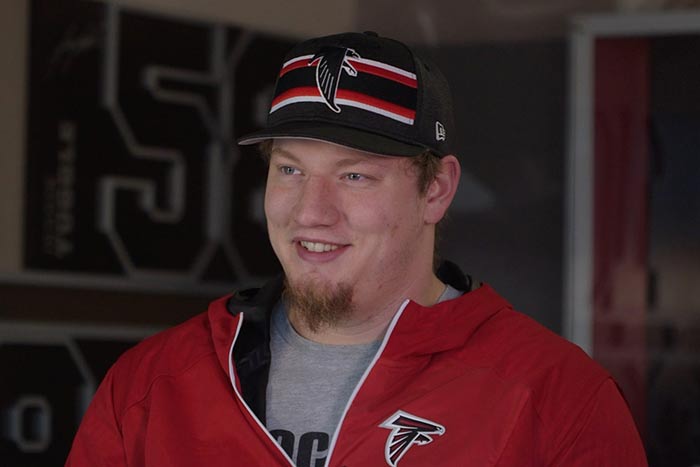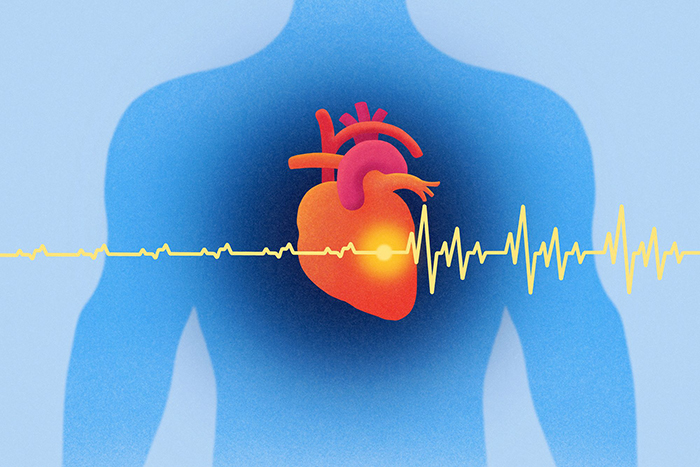How To Prevent Sudden Cardiac Arrest in Athletes
“One of the unfortunate realities is that these cases do happen, and we can’t prevent them all,” says Dr. Kim. He recommends schools, fitness centers and sporting events prepare with staff trained in CPR and how to use an on-site defibrillator.
Dr. Kim also recommends athletes get regular physical exams. During the exam, a provider will listen to the heart with a stethoscope. Physicals provide an opportunity for any athlete to uncover symptoms for some conditions that can cause sudden cardiac arrest. They also discuss family history, which can reveal a risk for inherited conditions. If a provider notices anything unusual during a physical, they will recommend further heart tests.
When To Get an EKG Test
An electrocardiogram (EKG) can detect some heart conditions. But currently, screening EKGs are not mandatory for all young athletes.
“There is no definitive data that shows screening EKGs in athletes leads to better outcomes, compared to a physical exam and reviewing family history,” says Dr. Kim. “And reading an athlete’s EKG differs from reading a non-athlete’s EKG.”
Without the right expertise, EKGs can lead to false positive results, which can cause anxiety, lead to inappropriate medical testing, and prevent healthy kids from playing sports. “The wrong expertise and lack of appropriate resources in athlete screening programs can lead to bad outcomes, too. Screening programs must be thoughtfully designed with all the appropriate resources in place to be effective.”
So, when does an EKG make sense? Dr. Kim acknowledges the decision is very personal to some people, especially if they have lost a loved one to heart disease. “A screening EKG makes sense in the right context. You need a physician who knows how to read an athlete’s EKG.” With the right expertise, an EKG can help you understand more about your heart health and potentially discover a condition you need to monitor.
Sports Cardiology Care Tailored to Athletes of All Levels
Athletes and their hearts have unique needs. As head of Emory Healthcare’s Sports Cardiology Program, Dr. Kim evaluates and treats cardiovascular conditions for athletes of all ages and levels.
“I always knew I wanted to become a sports cardiologist,” says Dr. Kim. “I was interested in sudden cardiac arrest in athletes, EKGs, and exercise physiology, and my passion took off.”
Emory Healthcare is the official health care provider for the Atlanta Hawks, Atlanta Braves, Atlanta Falcons, Atlanta Dream and the Atlanta Vibe. Emory also cares for many local college and high school teams. Dr. Kim oversees pre-season heart screenings and condition management for athletes, coaches and staff members for these teams.
Dr. Kim and the Sports Cardiology team know how to care for elite athletes and everyday exercisers. “If a professional athlete has heart palpitations, they can’t be out for a month waiting to get tests. Likewise, a recreational athlete who has a marathon in six weeks can’t wait. We get them answers ASAP because it’s important to them.”
You might see a sports cardiologist for many reasons:
- For screenings: A sports cardiologist is trained to read athletes’ screening results, such as EKGs.
- For prevention: Athletes with a family history of heart disease or high blood pressure can work with a sports cardiologist to prevent problems.
- After a diagnosis: If you have symptoms or learn you have a heart condition, a sports cardiologist can help athletes stay active and safe.
- During recovery: After a cardiac event or procedure, a sports cardiologist can help athletes get back to physical activity or sport.
As specialized members of your care team, sports cardiologists collaborate with other heart specialists, sports medicine and primary care providers.
Schedule a Sports Cardiology Appointment
Since its inception in 2014, sports cardiology at Emory Healthcare has become one of the top programs in the United States in this growing field. Sports cardiologists know how to order appropriate tests for athletes, read athlete test results, make accurate diagnoses and give exercise and sports counseling for athletes with heart disease.
To make an appointment with a specialized sports cardiologist, please call 404-778-6070.





